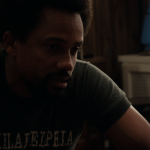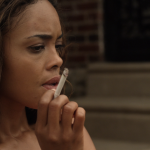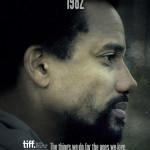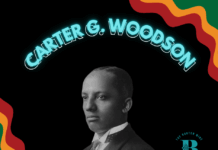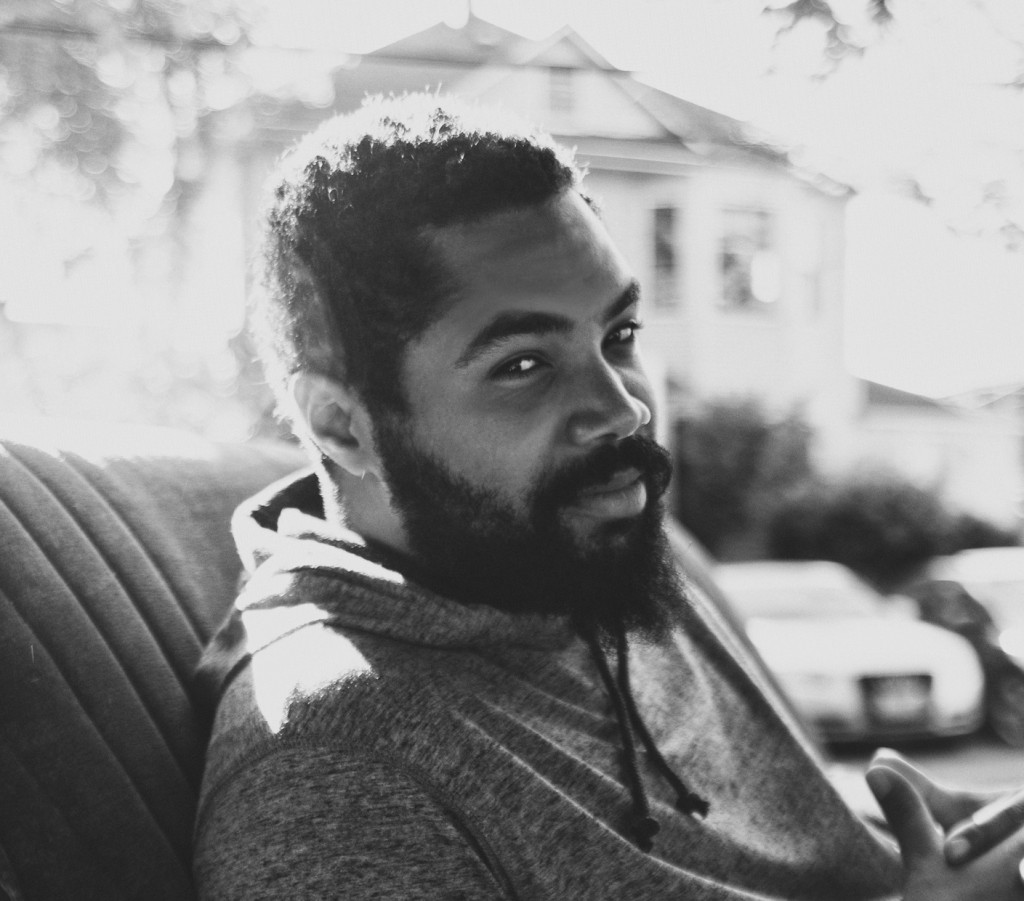
(Photo Credit: Victoria Kovios)
1982 is a 90-minute tearjerker loosely based on the life of filmmaker Tommy Oliver. The movie tells the poignant story of a loyal, hard-working Philadelphia family man (Hill Harper) taking care of his 10-year-old daughter (Troi Zee) while he struggles to help his wife (Sharon Leal) overcome a crack cocaine addiction.
Set during the Reagan-era, Oliver’s actual experiences occurred in the late 1980s and early 1990s. The period piece opens with vintage home movies. Subsequent scenes have dark lighting that gives the entire story its somber mood. The family’s West Oak Lane home featured in the movie was the very house where Oliver’s grandmother raised him. Growing up with an absentee father, Oliver created the ideal father and innocent daughter to reflect his aspirational desires as a child.
1982 was Oliver’s coping mechanism for overcoming his single mother’s substance abuse. The story is a cautionary snapshot of how drug abuse trickles down and interrupts the family structure. So far, Oliver is amazed by the audiences’ initial reactions. “The reception has been really incredible…like genuinely,” says Oliver post-screening at this year’s Atlanta Film Festival. “There have been multiple standing ovations, people crying and being all emotional. The film has been well-received far more than I could’ve ever hoped for.”
Oliver goes on to say that he is interested in the diverse audiences of 1982, all of whom relate to different messages in the film. “I trust my audience,” he says. “I believe they are smart, and I never want to pander to them. What they gravitate towards or what they will take away will depend on what they bring, who and how they are.”
1982’s ensemble cast includes Ruby Dee, Wayne Brady, Bokeem Woodbine and LaLa Anthony. The independent feature film was an official entry at Toronto International Film Festival. 1982 also earned Audience Awards at the Pan African Film Festival and Austin Film Festival and an additional Top Prize at U.S. in Progress.
Oliver, an economics and digital media major with a business minor at Carnegie Mellon University, was originally moonlighting as a filmmaker while working for Microsoft. Now the owner of a production company, VILIV Studios, Oliver initially wasn’t set to direct his own film. “When I took the job, I knew I was halfway selling out. I told myself I’d pursue filmmaking on the side, which is bold. There’s no such thing as filmmaking on the side,” says Oliver.
Prior to 1982, Oliver’s work had been recognized at film festivals. He produced the 2011 film, Kinyarwanda, which won Sundance Film Festival’s Dramatic World Cinema Audience Award. Raising capital to make 1982, however, proved to be a challenge. Though Oliver received partial funding from the San Francisco Film Society and the Kenneth Rainin Foundation, funds completely depleted as production was on the verge of completion. Oliver made numerous attempts to attract investors.
His compelling story, he remembers, wasn’t exactly enough to encourage some supporters to contribute. Oliver says, “People like the story, but they can like something and don’t have to necessarily see it as being financially viable,” he says. Oliver pulled through and got the film completed. He wore many hats on set but credits his peer group as his motivation for staying on task. “It wasn’t a one-man-band,” says Oliver. “There were a lot of amazing, smart and talented people around. Otherwise, I would’ve lost it. I had people that I could trust, ask things and just have that support.”
Most importantly, 1982 has allowed Oliver to resolve issues and work on his relationship with his mother, who has been clean for over 20 years. Following the Q&A at the Atlanta screening, Oliver read a congratulatory and apologetic text message from his mother to the audience. She expresses how proud she is of her son’s accomplishments. “My mother never really understood how her addiction impacted me,” says Oliver. [The film] offered this perspective she never really thought about, and that’s been pretty incredible.”
Oliver is currently working on what he tells one audience member is “a lot of different projects.” He hopes that his films spark conversations outside of film critics circles and the theaters. “It’s not a message movie,” says Oliver. “The reason I wanted to make movies is to be able to make a difference. I believe in the transformative power of film and to have people talk about these things not necessarily publicly. Being able to avoid some potential missteps within their own small circles and families is what it’s all about.”
Christopher A. Daniel is pop cultural critic and music editor for The Burton Wire. He is also a contributing writer for Urban Lux Magazine and Blues & Soul Magazine. Follow Christopher @Journalistorian on Twitter.
Like The Burton Wire on Facebook. Follow us on Twitter @TheBurtonWire.




